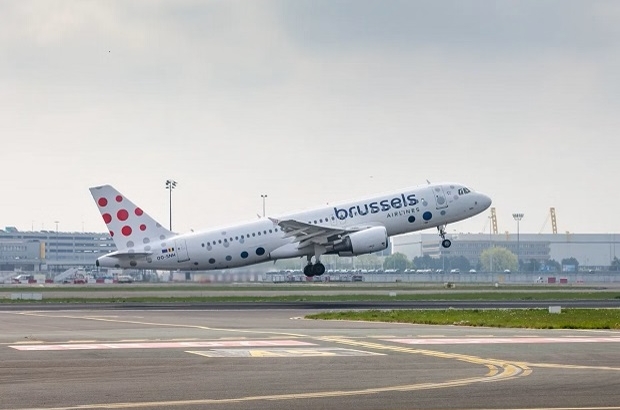- Daily & Weekly newsletters
- Buy & download The Bulletin
- Comment on our articles
Brussels Airlines relaunches course to overcome fear of flying
People looking to overcome a fear of flying will soon be able to take a training course from Brussels Airlines designed to help ease their anxiety.
Made with help from behavioural therapists, the ‘Fear of Flying’ course will start with a one-hour interview and take place either on location in Antwerp or West Flanders, or online.
It will only be offered in Dutch at first, but French and English sessions could take place if there is enough demand.
“Now that the travel sector is slowly picking up speed again, people suffering from fear of flying are also seeking help more frequently,” Brussels Airlines explained.
A similar course was offered in the past and boasted a high success rate: more than eight in 10 participants were able to travel by plane without anxiety after completing the training.
The new version of the course includes a Virtual Reality (VR) component.
As recently as last summer, Belgium was seeing a return to pre-pandemic levels of travellers.
“Logically, there are again more requests for help from people with a fear of flying,” said psychologist and behavioural therapist Marieke Impens, who collaborated on the project with organisation The Human Link.
“These are people from all walks of life, from teenagers to those in their seventies. And it's really not just business travellers – think of parents whose children go abroad to study with Erasmus, or people who have found a partner they love dearly and who wants to see the world. Some even work in the aviation industry and are suddenly constrained by fear.”
To meet this renewed demand, the ‘Fear of Flying’ course will launch at the end of March after a four-year hiatus.
“The course was created back in 2006 in collaboration with the Ghent University and is scientifically based,” Impens explained.
“The success rate was always above 80%. Due to the Covid pandemic, we put the course 'on hold' for a while, but continued tweaking our approach. This has given us even more insight into how fear works and we are convinced that we can now counsel people with fear of flying even better.”
The programme consists of three parts, beginning with an interview with a therapist to determine if it is the most appropriate course of action for the person with a fear of flying.
The course itself includes a full day spent at the airport.
“In the morning, a pilot first immerses you in the world of aviation – explaining how a plane stays in the air, what exactly is turbulence, etc,” said Luc Michiels, a trainer and pilot for Brussels Airlines.
“The other half-day is spent on concrete exercises with therapists to deal in a different way with the feelings passengers have when they are anxious.”
With the addition of VR, participants will also get to practise being in a plane. Then, they experience the real thing.
“Per three participants, one therapist accompanies them to help them to deal with their fear in the right way, which will programme their brain differently,” said Impens.
“They learn to make their own choices again, instead of letting fear determine these choices. By allowing them to experience flying without all the 'safety devices' they have made their own over the years, anxiety often subsides fairly quickly.”
The therapists at The Human Link explain that there are not any ready-made tips that work permanently for people with a genuine fear of flying.
“In the short term, tips like 'don't drink caffeine' may help, but unfortunately they do more harm than good in the long term,” they say.
“Above all, you need to realise that it really is OK to be anxious. Your body needs to be able to experience that you can get off a plane in one piece, even without any gimmicks.”
The programme will cost around €1,000.
TUI also offers courses on how to deal with fear of flying, working in conjunction with FreeSky.


















